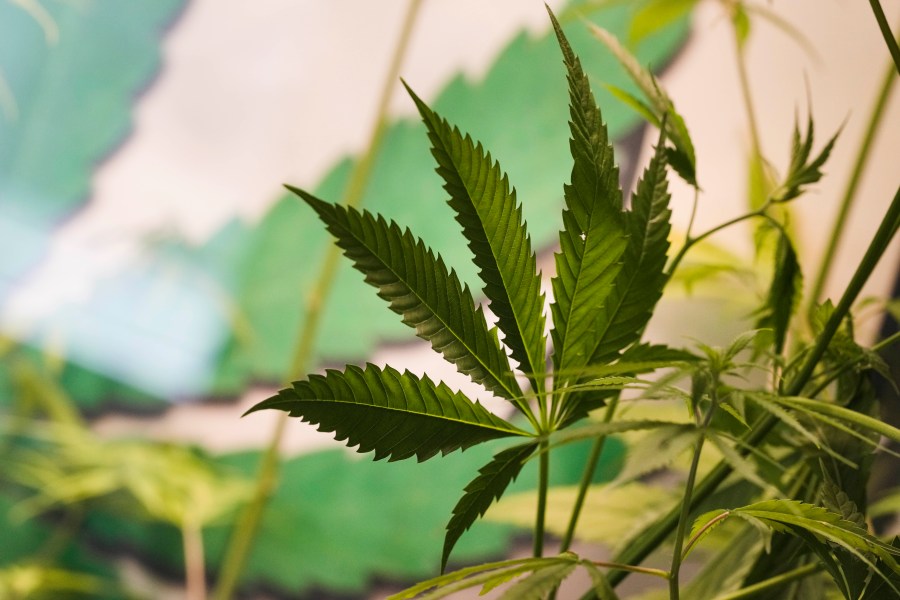Health
Hemp Industry Faces Crisis as Federal THC Ban Advances

The U.S. Senate has advanced a federal ban on tetrahydrocannabinol (THC), sending shockwaves through the hemp industry. This decision, made late on October 23, 2023, has raised alarms among industry representatives who argue that the ban could lead to catastrophic consequences for hemp businesses across the country.
The legislation, primarily supported by members of the Republican Party, aims to regulate THC levels in hemp-derived products more strictly. As a result, many companies are now scrambling to adapt to the potential changes that could reshape the entire industry. Representatives from the American Hemp Farmers organization have voiced concerns that this ban may represent an “extinction-level event” for many small businesses reliant on hemp production.
Impact on the Hemp Economy
The hemp industry has experienced significant growth over recent years, particularly in the areas of CBD products and sustainable materials. According to industry estimates, the market for hemp-derived goods was valued at approximately $4.6 billion in 2022 and is projected to reach $13.2 billion by 2028. The potential federal ban could drastically alter this trajectory, impacting not only large corporations but also small farmers and entrepreneurs who have invested heavily in hemp cultivation.
Many businesses are now actively seeking ways to mitigate the effects of the proposed ban. Some are exploring alternative products, while others are lobbying Congress for amendments to the legislation. John Doe, a representative for a leading hemp producer, stated, “If this ban goes through, it will cripple our ability to operate. We need clarity and support from our lawmakers.”
Regulatory Challenges Ahead
The impending ban raises questions about the regulatory landscape surrounding hemp and its derivatives. Currently, the U.S. Food and Drug Administration (FDA) oversees the regulation of hemp products, and any changes to THC levels could require substantial adjustments to existing compliance protocols. Industry experts warn that the complexity of these changes may create additional hurdles for businesses already struggling with a fragmented regulatory environment.
In response to the Senate’s decision, numerous stakeholders from the hemp industry are joining forces to advocate for a more balanced approach to legislation. They argue that instead of outright bans, a comprehensive regulatory framework that promotes safe consumption while supporting industry growth is necessary.
As the situation continues to unfold, the hemp industry remains on high alert. The potential for regulatory changes looms large, and the outcomes of ongoing discussions in Congress will play a pivotal role in determining the future of hemp production in the United States.
-

 Top Stories3 weeks ago
Top Stories3 weeks agoMarc Buoniconti’s Legacy: 40 Years Later, Lives Transformed
-

 Health3 weeks ago
Health3 weeks agoInnovative Surgery Restores Confidence for Breast Cancer Patients
-

 Sports4 weeks ago
Sports4 weeks agoSteve Kerr Supports Jonathan Kuminga After Ejection in Preseason Game
-

 Top Stories2 weeks ago
Top Stories2 weeks agoBOYNEXTDOOR’s Jaehyun Faces Backlash Amid BTS-TWICE Controversy
-

 Science4 weeks ago
Science4 weeks agoChicago’s Viral ‘Rat Hole’ Likely Created by Squirrel, Study Reveals
-

 Entertainment4 weeks ago
Entertainment4 weeks agoZoe Saldana Advocates for James Cameron’s Avatar Documentary
-

 Lifestyle4 weeks ago
Lifestyle4 weeks agoKelsea Ballerini Launches ‘Burn the Baggage’ Candle with Ranger Station
-

 Politics4 weeks ago
Politics4 weeks agoDallin H. Oaks Assumes Leadership of Latter-day Saints Church
-

 Business4 weeks ago
Business4 weeks agoTyler Technologies Set to Reveal Q3 2025 Earnings on October 22
-

 Business2 weeks ago
Business2 weeks agoForeign Inflows into Japan Stocks Surge to ¥1.34 Trillion
-

 Lifestyle4 weeks ago
Lifestyle4 weeks agoDua Lipa Celebrates Passing GCSE Spanish During World Tour
-

 Health4 weeks ago
Health4 weeks agoCommunity Unites for Seventh Annual Mental Health Awareness Walk









